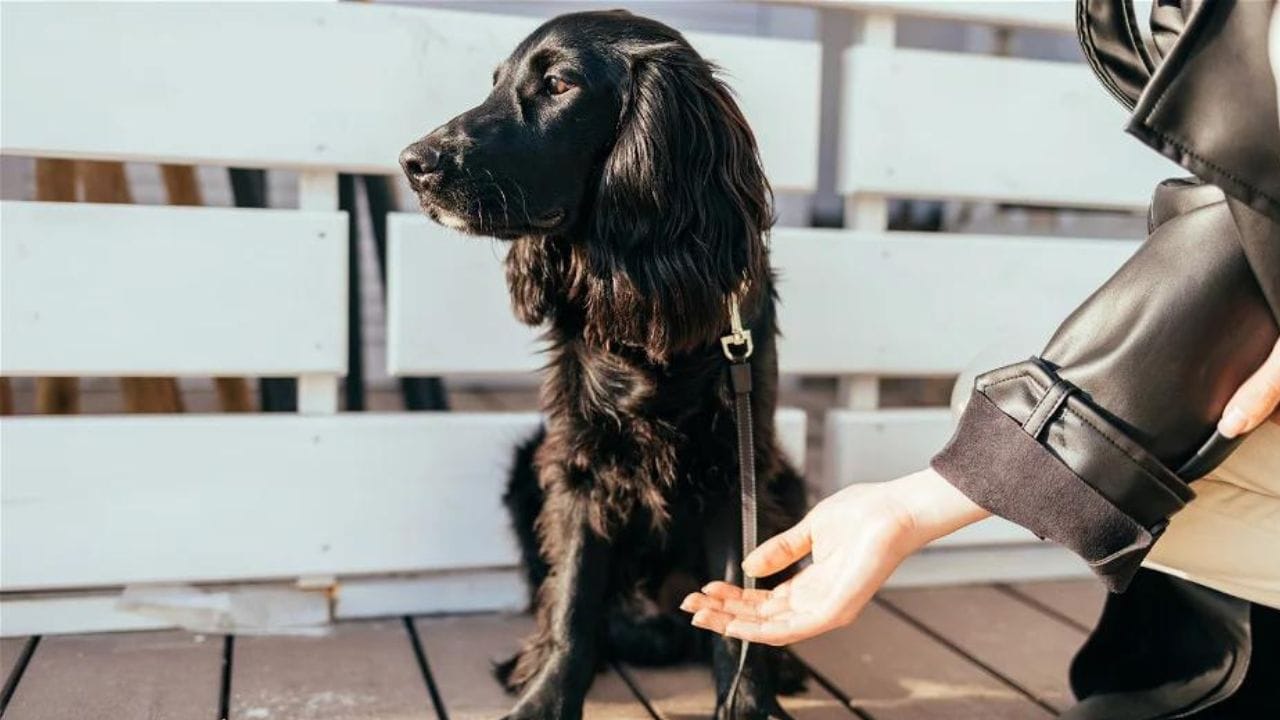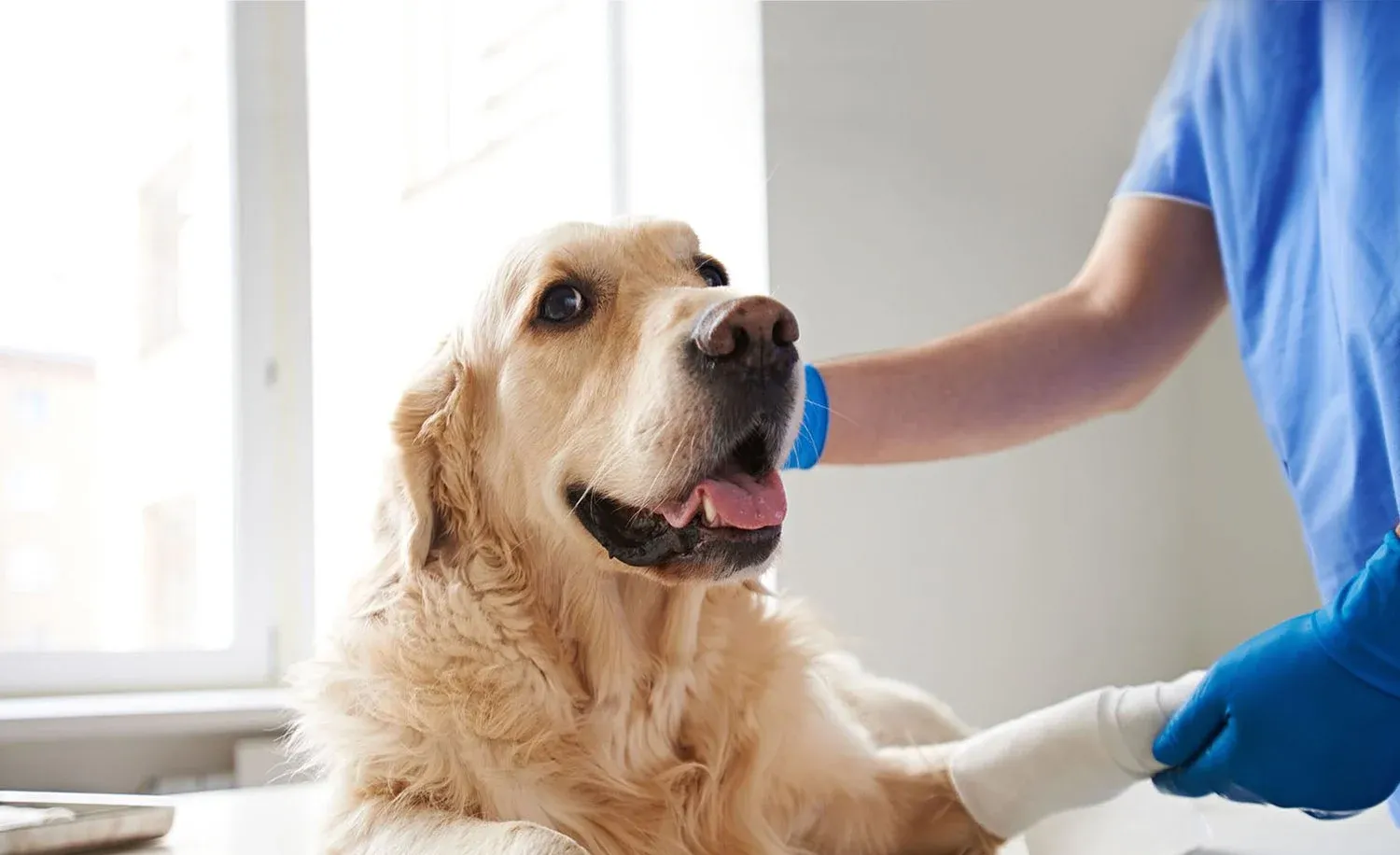Many dog owners have experienced their pets ignoring them at some point. It can be frustrating, confusing, and even hurtful when a dog seems to disregard their owner's commands or affection. However, it's important to understand that this behavior is not necessarily a reflection of the owner's relationship with their pet. There are several reasons why a dog may ignore their owner, and it's crucial to identify and address the root cause.

One common reason why dogs ignore their owners is due to a lack of training or inconsistent training. Dogs thrive on routine and clear communication, and if their owner hasn't provided them with proper training and guidance, they may not understand what is expected of them. Additionally, if training is inconsistent or only enforced some of the time, dogs may become confused and choose to ignore their owner's commands altogether.
Another reason why dogs may ignore their owners is due to distractions or competing stimuli. Dogs have a keen sense of smell and hearing, and if they catch a whiff of an interesting scent or hear a loud noise, they may become fixated on that instead of their owner. This can be especially true in outdoor environments, where there are many sights, sounds, and smells that can capture a dog's attention.
Understanding Canine Behavior
Dogs are social animals that communicate through body language, vocalizations, and scent. Understanding their behavior can help explain why they may be ignoring their owner and provide insight into how to improve the relationship.
Communication and Body Language
Dogs rely heavily on body language to communicate their intentions and emotions. They use their ears, tail, and posture to convey information to other dogs and humans. If a dog is ignoring their owner, it may be because they are not receiving clear communication.

Owners can improve communication by learning to read their dog's body language and responding appropriately. Positive reinforcement training can also help reinforce desired behaviors and strengthen the bond between dog and owner.
Focus and Distractions
Dogs have a limited attention span and can easily become distracted by their environment. If a dog is ignoring their owner, it may be because they are focused on something else or overwhelmed by their surroundings.
Owners can help their dog focus by minimizing distractions and providing a calm, structured environment. Training sessions should be short and focused, with clear cues and rewards for desired behavior.
Trust and Relationship
A dog's relationship with their owner is built on trust and respect. If a dog is ignoring their owner, it may be because they do not feel secure or comfortable in their presence.

Owners can build trust by providing consistent, positive interactions and avoiding punishment or harsh training methods. Spending quality time with their dog and providing plenty of exercise and mental stimulation can also help strengthen the bond between dog and owner.
By understanding canine behavior and addressing any underlying issues, owners can improve their relationship with their dog and prevent them from ignoring them.
The Impact of Training
Training is an essential aspect of owning a dog. It helps to establish a clear line of communication between the owner and the dog, which is crucial for building a strong bond. Training can also help to correct bad behavior and prevent future problems from arising. In this section, we will discuss the impact of training on a dog's behavior and why it is essential to train your dog to stop ignoring you.
Importance of Consistency
Consistency is key when it comes to dog training. Dogs thrive on routine, and they need to know what is expected of them. If you are inconsistent with your commands or rewards, your dog may become confused and not respond to you. It is essential to establish a consistent routine and stick to it. This will help your dog understand what is expected of them and make it easier for them to learn.
Training Techniques and Commands
There are many different training techniques and commands that you can use to train your dog to stop ignoring you. Positive reinforcement is one of the most effective training techniques. This involves rewarding your dog for good behavior, such as following commands or coming when called. You can use treats, toys, or verbal praise as rewards.
Some of the most important commands to teach your dog include "sit," "stay," "come," and "heel." These commands will help you establish control over your dog and prevent them from ignoring you. It is essential to use clear and concise commands, and to avoid using too many different commands at once.
Professional Training and Classes
If you are struggling to train your dog or feel like you need additional help, you may want to consider professional training or classes. A dog trainer can help you identify the root cause of your dog's behavior and develop a customized training plan to address it. Training classes can also be a great way to socialize your dog and learn new training techniques.
Training is essential for preventing your dog from ignoring you. Consistency, positive reinforcement, and clear commands are key to successful training. If you are struggling to train your dog, consider seeking professional help or enrolling in a training class. With patience and dedication, you can train your dog to be obedient and responsive to your commands.
Behavioral and Medical Concerns
Identifying Anxiety and Fear
One possible reason why a dog may ignore its owner is due to anxiety or fear. Dogs that are scared or anxious may exhibit avoidance behavior, such as hiding or ignoring their owners. Signs of anxiety or fear in dogs include trembling, panting, pacing, and excessive barking.
If a dog is exhibiting these behaviors, it is important to identify the root cause of the anxiety or fear. It could be due to a past traumatic experience, lack of socialization, or a current stressful situation. A professional dog trainer can help identify the cause and work with the dog to overcome their fear or anxiety.
Addressing Medical Issues
Another reason why a dog may ignore its owner is due to a medical issue. Dogs that are in pain or discomfort may exhibit changes in behavior, including ignoring their owners. It is important to take the dog to a veterinarian to rule out any underlying medical issues.

Some medical conditions that can cause a dog to ignore its owner include ear infections, dental problems, and arthritis. If a medical issue is identified, the veterinarian can provide treatment options to help alleviate the dog's discomfort and improve their behavior.
In summary, there are several behavioral and medical concerns that could cause a dog to ignore its owner. Identifying the root cause and addressing it appropriately can help improve the dog's behavior and strengthen the bond between the dog and its owner.
Improving Engagement and Motivation
Using High-Value Rewards
One effective way to improve engagement and motivation in dogs is by using high-value rewards. This could be anything from their favorite treat to a special toy or activity that they enjoy. By using these rewards, you can create a positive association with training and interaction, making it more likely that your dog will respond when called or given verbal cues.
Minimizing Distractions
Distractions can be a major obstacle to engagement and motivation in dogs. Environmental distractions such as other animals or loud noises can draw their attention away from you, while low engagement can make them less interested in what you are trying to communicate. By minimizing distractions and creating a calm, focused environment, you can help your dog stay engaged and interested in what you are doing.
Encouraging Positive Interactions
Another key to improving engagement and motivation is to encourage positive interactions between you and your dog. This could involve playing games, going for walks, or simply spending quality time together. By building a strong bond and positive relationship, you can create a foundation of trust and success that will make it easier to communicate and train your dog.
Overall, improving engagement and motivation in dogs requires patience, consistency, and a willingness to adapt to your dog's needs and preferences. By using high-value rewards, minimizing distractions, and encouraging positive interactions, you can create a more engaging and rewarding experience for both you and your furry friend.
Advanced Training Concepts
Understanding Complex Cues
When it comes to training your dog, it's essential to start with simple cues and commands before moving on to more complex ones. However, if your dog is already trained in basic commands and still ignores you, it may be time to introduce more complex cues.
Complex cues require your dog to understand multiple steps or concepts. For example, instead of simply asking your dog to sit, you may ask them to sit and stay while you walk away or while another person walks by.
To teach complex cues, it's essential to break them down into smaller, more manageable steps. Start by teaching each step individually and then gradually combine them. Consistency is key, and it's essential to use the same commands and gestures every time.
Dealing with Stubborn Behavior
If your dog is ignoring you, it's crucial to identify the root cause of the behavior. In some cases, stubbornness may be due to a lack of understanding of the command or low engagement. However, it can also be due to negative reinforcement, nagging, or punishment.
It's essential to avoid punishment or negative reinforcement, as this can lead to fear and anxiety in your dog. Instead, focus on positive reinforcement, such as treats and praise, to encourage good behavior.
If your dog is ignoring you due to hyper-arousal and survival instincts, it's essential to address the underlying cause of the behavior. This may involve reducing environmental distractions or providing additional mental and physical stimulation.
In conclusion, advanced training concepts can help you teach your dog more complex cues and commands. However, it's essential to identify and address any underlying behavior issues, such as stubbornness or hyper-arousal, to ensure success. Consistency, positive reinforcement, and patience are key to effective training.
Practical Tips for Dog Owners
Daily Routines and Exercises
Establishing a daily routine is essential for building trust and strengthening the bond between a dog and its owner. Dogs thrive on structure and predictability, and a consistent routine can help alleviate stress and anxiety. Owners should aim to provide their dogs with regular exercise, mental stimulation, and playtime.
Daily exercise is crucial for a dog's physical and mental well-being. A brisk walk or run around the neighborhood can help burn off excess energy and prevent destructive behaviors. Interactive toys such as puzzle feeders or chew toys can provide mental stimulation and help prevent boredom.
In addition to exercise and playtime, owners should also incorporate training sessions into their daily routine. Basic commands such as "sit," "stay," and "leave it" can help establish boundaries and expectations. Positive reinforcement techniques, such as rewarding good behavior with treats or praise, can help build trust and strengthen the bond between dog and owner.

Setting Boundaries and Expectations
Setting clear boundaries and expectations is essential for establishing a healthy relationship between dog and owner. Dogs need to understand what is expected of them and what behaviors are unacceptable. Owners should be consistent in their training and discipline, and avoid scolding or punishing their dogs for behaviors they do not understand.
One effective way to set boundaries is to establish a designated space for the dog. This could be a crate, a bed, or a designated area in the home. Dogs should be taught to associate this space with positive experiences, such as treats or toys. This can help prevent unwanted behaviors such as jumping or begging at the dinner table.
Owners should also be mindful of their own behavior and body language. Dogs are highly attuned to their owner's emotions, and can pick up on subtle cues such as tension or anxiety. Remaining calm and assertive can help establish trust and reinforce positive behaviors.
By incorporating these practical tips into their daily routines, dog owners can help strengthen the bond between themselves and their furry companions. With patience, consistency, and positive reinforcement, even the most stubborn dog can learn to listen and obey.
Frequently Asked Questions
- Why might my dog not respond when I call his name?
- There are several reasons why a dog may not respond when called by name. One of the most common reasons is that the dog is distracted by something else, such as a scent or another animal. Another reason could be that the dog has not been properly trained to respond to its name. It is important to ensure that your dog receives proper training and attention to help improve their response to their name.
- What causes a dog to only pay attention when food is present?
- Dogs are naturally motivated by food, and it is a common training technique to use treats as a reward for good behavior. However, if a dog only pays attention when food is present, it may be a sign that they have not been properly trained or that they have developed a habit of only responding when food is offered. It is important to use positive reinforcement techniques and to gradually reduce the use of treats as a reward to help your dog pay attention to you even when food is not present.
- How can I understand my dog's behavior when there are visitors around?
- Dogs can become anxious or excited when there are visitors around, and their behavior may change as a result. It is important to observe your dog's behavior and body language and to provide them with a safe and comfortable space to retreat to if they become overwhelmed. It may also be helpful to provide your dog with plenty of exercise and mental stimulation before visitors arrive to help them remain calm and focused.
- What are the reasons for a dog to seem uninterested when the owner returns home?
- A dog may seem uninterested when their owner returns home for a variety of reasons. It could be that the dog has become accustomed to the owner's comings and goings and no longer sees them as significant events. Alternatively, the dog may be experiencing separation anxiety or may be feeling ill or lethargic. It is important to observe your dog's behavior and to seek veterinary advice if you have concerns about their health.
- Is it normal for a dog to behave differently towards me after a vacation?
- It is not uncommon for a dog to behave differently towards their owner after a vacation, particularly if the owner has been away for an extended period of time. The dog may need time to readjust to the owner's presence and to establish their routine once again. It is important to be patient and to provide your dog with plenty of love and attention as they readjust to your return.
- Why does my dog seem to pay more attention to my partner than to me?
- Dogs may develop stronger bonds with certain individuals based on their interactions and experiences. It is possible that your partner has spent more time with the dog or has engaged in activities that the dog particularly enjoys. It is important to continue to spend quality time with your dog and to engage in activities that they enjoy to help strengthen your bond.